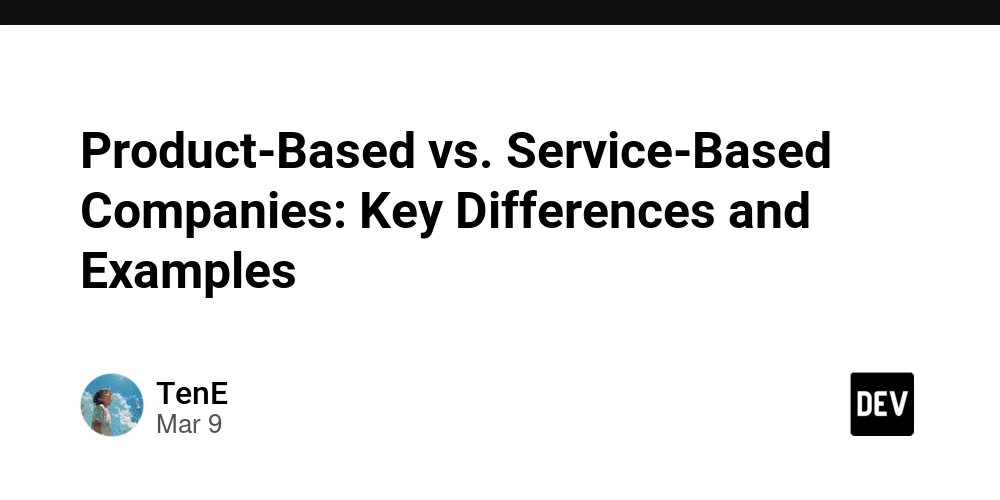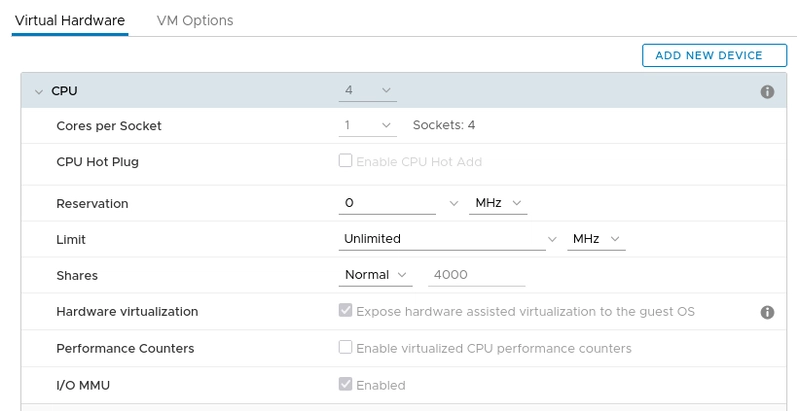Product-Based vs. Service-Based Companies: Key Differences and Examples
Introduction In the business world, companies typically fall into two broad categories: product-based and service-based. Understanding the distinction between these types of companies can help businesses and professionals make informed decisions regarding investments, career choices, and market strategies. What is a Product-Based Company? A product-based company develops, manufactures, and sells physical or digital products. These companies focus on innovation, research, and development to create marketable goods that consumers or businesses purchase. Characteristics of Product-Based Companies: Develop tangible or digital products Focus on research and development (R&D) Generate revenue from product sales Require significant initial investment in manufacturing or software development Scale by increasing product sales and expanding markets Examples of Product-Based Companies: Company Notable Products Apple iPhones, MacBooks, iPads Microsoft Windows, Office Suite, Xbox Google Google Pixel, Nest, Android OS Tesla Electric Vehicles, Solar Panels Samsung Smartphones, TVs, Home Appliances Intel Processors, Chipsets Amazon Kindle, Echo, AWS Cloud Services Adobe Photoshop, Illustrator, Premiere Pro Sony PlayStation, Cameras, Audio Devices Dell Laptops, Monitors, Servers What is a Service-Based Company? A service-based company primarily provides expertise, labor, or support to clients rather than selling physical products. These companies rely on human resources, technology, and business processes to deliver solutions tailored to customer needs. Characteristics of Service-Based Companies: Offer professional services, IT solutions, or consulting Revenue is generated from contracts, subscriptions, or consulting fees Focus on customer relationships and support Scale through workforce expansion and efficiency improvements Require skilled human resources for quality service delivery Examples of Service-Based Companies: Company Services Offered Accenture IT Consulting, Business Strategy Infosys Software Development, IT Services TCS Business Process Outsourcing, IT Solutions Wipro Cybersecurity, Cloud Computing Services IBM AI, Cloud Computing, Consulting Cognizant Digital Solutions, IT Services Capgemini IT Solutions, Business Consulting Deloitte Financial & IT Services, Auditing HCL Technologies Software Development, IT Consulting Tech Mahindra IT Consulting, Digital Transformation Key Differences Between Product-Based and Service-Based Companies Factor Product-Based Companies Service-Based Companies Revenue Model Earn from product sales Earn from services rendered Scalability Scales through product sales and market expansion Scales through workforce and process optimization Investment Requires capital for R&D, production Requires skilled workforce and infrastructure Focus Area Innovation, product design, and branding Client relationships, expertise, and service delivery Examples Apple, Microsoft, Tesla Accenture, TCS, Deloitte Conclusion Both product-based and service-based companies play a crucial role in the economy. While product-based companies focus on creating and selling tangible or digital goods, service-based companies specialize in providing expertise and solutions to customers. Choosing between these business models depends on various factors, including investment capacity, market demand, and long-term goals. Understanding these differences helps businesses strategize effectively and enables professionals to align their career choices with their skills and interests.

Introduction
In the business world, companies typically fall into two broad categories: product-based and service-based. Understanding the distinction between these types of companies can help businesses and professionals make informed decisions regarding investments, career choices, and market strategies.
What is a Product-Based Company?
A product-based company develops, manufactures, and sells physical or digital products. These companies focus on innovation, research, and development to create marketable goods that consumers or businesses purchase.
Characteristics of Product-Based Companies:
- Develop tangible or digital products
- Focus on research and development (R&D)
- Generate revenue from product sales
- Require significant initial investment in manufacturing or software development
- Scale by increasing product sales and expanding markets
Examples of Product-Based Companies:
| Company | Notable Products |
|---|---|
| Apple | iPhones, MacBooks, iPads |
| Microsoft | Windows, Office Suite, Xbox |
| Google Pixel, Nest, Android OS | |
| Tesla | Electric Vehicles, Solar Panels |
| Samsung | Smartphones, TVs, Home Appliances |
| Intel | Processors, Chipsets |
| Amazon | Kindle, Echo, AWS Cloud Services |
| Adobe | Photoshop, Illustrator, Premiere Pro |
| Sony | PlayStation, Cameras, Audio Devices |
| Dell | Laptops, Monitors, Servers |
What is a Service-Based Company?
A service-based company primarily provides expertise, labor, or support to clients rather than selling physical products. These companies rely on human resources, technology, and business processes to deliver solutions tailored to customer needs.
Characteristics of Service-Based Companies:
- Offer professional services, IT solutions, or consulting
- Revenue is generated from contracts, subscriptions, or consulting fees
- Focus on customer relationships and support
- Scale through workforce expansion and efficiency improvements
- Require skilled human resources for quality service delivery
Examples of Service-Based Companies:
| Company | Services Offered |
|---|---|
| Accenture | IT Consulting, Business Strategy |
| Infosys | Software Development, IT Services |
| TCS | Business Process Outsourcing, IT Solutions |
| Wipro | Cybersecurity, Cloud Computing Services |
| IBM | AI, Cloud Computing, Consulting |
| Cognizant | Digital Solutions, IT Services |
| Capgemini | IT Solutions, Business Consulting |
| Deloitte | Financial & IT Services, Auditing |
| HCL Technologies | Software Development, IT Consulting |
| Tech Mahindra | IT Consulting, Digital Transformation |
Key Differences Between Product-Based and Service-Based Companies
| Factor | Product-Based Companies | Service-Based Companies |
|---|---|---|
| Revenue Model | Earn from product sales | Earn from services rendered |
| Scalability | Scales through product sales and market expansion | Scales through workforce and process optimization |
| Investment | Requires capital for R&D, production | Requires skilled workforce and infrastructure |
| Focus Area | Innovation, product design, and branding | Client relationships, expertise, and service delivery |
| Examples | Apple, Microsoft, Tesla | Accenture, TCS, Deloitte |
Conclusion
Both product-based and service-based companies play a crucial role in the economy. While product-based companies focus on creating and selling tangible or digital goods, service-based companies specialize in providing expertise and solutions to customers. Choosing between these business models depends on various factors, including investment capacity, market demand, and long-term goals.
Understanding these differences helps businesses strategize effectively and enables professionals to align their career choices with their skills and interests.









































































































































































![[The AI Show Episode 142]: ChatGPT’s New Image Generator, Studio Ghibli Craze and Backlash, Gemini 2.5, OpenAI Academy, 4o Updates, Vibe Marketing & xAI Acquires X](https://www.marketingaiinstitute.com/hubfs/ep%20142%20cover.png)



























































































































![[DEALS] The Premium Learn to Code Certification Bundle (97% off) & Other Deals Up To 98% Off – Offers End Soon!](https://www.javacodegeeks.com/wp-content/uploads/2012/12/jcg-logo.jpg)


![From drop-out to software architect with Jason Lengstorf [Podcast #167]](https://cdn.hashnode.com/res/hashnode/image/upload/v1743796461357/f3d19cd7-e6f5-4d7c-8bfc-eb974bc8da68.png?#)






































































































.png?#)




.jpg?#)
































_Christophe_Coat_Alamy.jpg?#)
 (1).webp?#)









































































































![Rapidus in Talks With Apple as It Accelerates Toward 2nm Chip Production [Report]](https://www.iclarified.com/images/news/96937/96937/96937-640.jpg)






































































































































